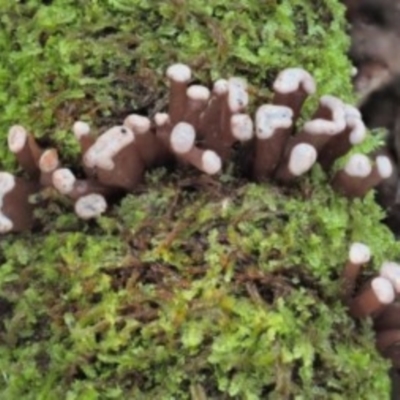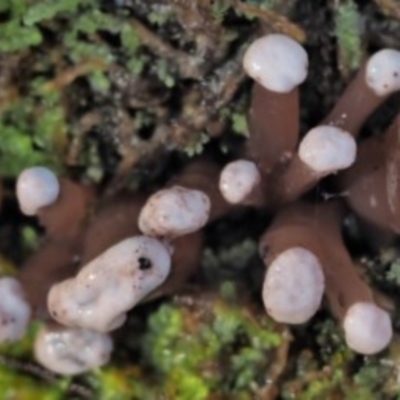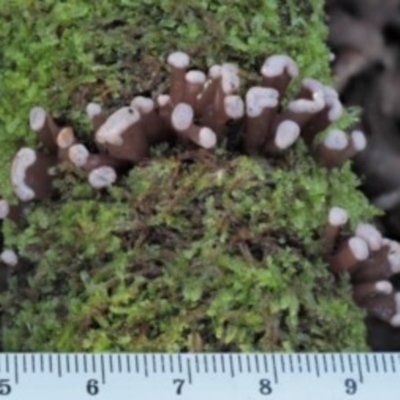Ascocoryne sarcoides (Purple Jellydisc)
The sexual spores are produced in a fruitbody that is a shallow, stemless (or very shortly-stemmed) cup. It is smooth (or finely fuzzy on the underside), with a jelly-like consistency, pinkish-purple and up to 2 centimetres in diameter (though often no more than half that). The cups may grow in clusters with mutual pressure distorting their shapes.
That asexual spores are produced in a different structure (though of the same colour and also jelly-like). This may be somewhat finger like (a few millimetres tall) or an irregular lump if the fingers are closely clustered or fused together.
The sexual or asexual states are found on dead wood.
Look-alikes
The texture may make you think of species of Tremella, but their fruitbodies are very much lobed or brain-like (and then not pinkish-purple). Ascotremella faginea (known from Victoria) is of a similar colour, is somewhat brainlike and it seems possible to mistake such a fruitbody with a cluster of distorted Ascocoryne cups.
Various northern hemisphere websites of books point out that the sexual forms of Ascocoryne sarcoides and Ascocoryne cylichnium cannot be distinguished macroscopically. The latter species seems to have not yet been found in Australia, but it is known from from New Zealand so perhaps one day will be found here. It seems that no separate asexual form of Ascocoryne cylichnium appears in nature (with asexual spores produced within the sexual state).
Gallery
Regional distribution
Ascocoryne sarcoides is listed in the following regions:









